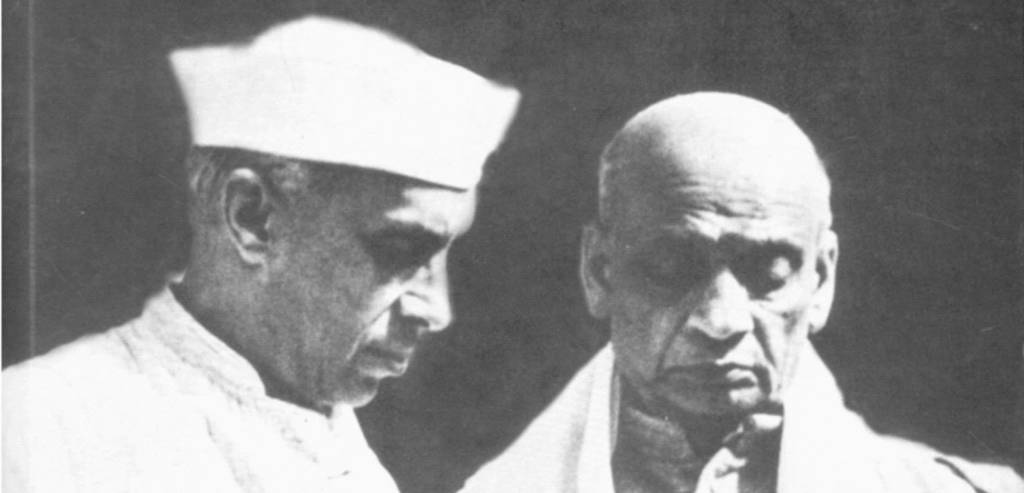31st October 1875, the birthday of the Iron Man of India Sardar Vallabhai Patel is celebrated as ‘Rashtriya Ekta Diwas’ or the National Unity Day with great fervour across the country. It was quintessentially Sardar who played a pivotal role in India’s struggle for independence and later during the integration of the country. Sardar Patel saved India from becoming an Islamic state, balkanized and Pakistani territory deep inside Indian state.
Sardar Vallabhbhai Patel adopted the policy of ‘Saam Daam Dand Bhed’ to integrate more than 500 princely states. The difficult princely states like Jodhpur, Junagadh, Hyderabad, and Kashmir were all integrated into India through his tactical and diplomatic acumen.
Patel, India’s first Deputy Prime Minister and the Minister of Home Affairs handled effectively the integration of princely states with his astute diplomatic skills and amazing foresightedness. He along with diplomat V.P. Menon overcame all the challenges coming in the way of unification of India.
Patel was well aware of Pakistan’s intention at that time too as far as Kashmir was concerned. He took a series of steps to ensure that the state of Kashmir remained with India. Sardar Patel diverted planes to Delhi-Srinagar route, and telephone and telegraph lines were laid between Pathankot, Amritsar and Jammu as well to gain strategic leverage. He initiated many steps to ensure that the Indian Army gets a strategic advantage. Yet, Patel could not cross one hurdle in his cabinet of stellar diplomatic records and it was not because of his mistake but rather it was because of the then Prime Minister Pandit Jawaharlal Nehru’s incompetency who practically gifted Tibet to China. Another major blunder of Nehru whose tenure was marred by blasphemies like these.
In the last weeks of Patel’s life (he passed away on December 15, 1950), there was a deep split between Nehru and Patel with the then PM Nehru taking almost unilateral political decisions, for which the country had to pay a massive debt. The major bone of contention was Tibet’s invasion by the Chinese “Liberation Army” in October 1950. Mao was preparing to invade Tibet. It is believed that on November 7, the deputy Prime Minister Sardar Patel wrote a ‘prophetic’ letter to Pandit Nehru, detailing the implications for India of Tibet’s invasion. In fact, the letter that was sent a month after the entry of the People’s Liberation Army in Tibet was a draft of the letter done by Sir Girja Shankar Bajpai, the secretary-general of the ministry of external affairs and Commonwealth relations which Patel sent verbatim under his signature. However, Nehru chose to ignore the letter as he wanted to warm up to the neighbours of China by being a good Samaritan. Not only did several Congress biggies, led by Patel, vehemently opposed Nehru’s suicidal policy, but many senior bureaucrats too did not concur with Nehru’s decisions and strongly objected to his policy of appeasement with China, which led India to lose a peaceful border.
“The Chinese advance into Tibet upsets all our security calculations. I entirely agree with you that a reconsideration of our military position and a redisposition of our forces are inescapable.” Patel had written to Bajpai after latter’s attempt to gain Nehru’s attention on the Tibet-issue were going down the drain
In his last speech on November 11, 1950, Sardar spoke of the potential dangers arising from what was happening in Tibet, and he exhorted his countrymen “It was incumbent on the people to rise above party squabbles and unitedly defend their newly-won freedom”, clearly taking a jibe at Nehru who was being careless in handling the issue.
Some more details of the seriousness of the situation filter through Inside Story of Sardar Patel: The Diary of Maniben Patel, the daughter of the Sardar. In an entry on November 2, 1950, Maniben wrote: “Rajaji and Jawaharlal had a heated altercation about the Tibet policy. Rajaji does not at all appreciate this policy. Rajaji very unhappy — Bapu (Patel) did not speak at all.” On December 12, Patel was divested of his portfolios. Sardar was only informed after the changes were made. He was deeply upset. Three days later he passed away.
The liberal intelligentsia of this country hails Nehru as a towering statesman, a beacon of socialism, the founder of the Non-Alignment revolution, a modern and forward-thinking man, the failures of Nehru as the prime minister of India are too many. The problem of Pakistan, Kashmir, China, Aksai Chin, Adoption of a socialistic model, giving up of UNSC seat for China and myriad other failures are gifts of Nehru to India. Had it not been for Sardar Patel, Kashmir and its strategic locations would have gone to Pakistan, giving the country the edge. It is because of the diplomatic success of Sardar Patel’s untiring efforts that today India has an edge over Pakistan and is a much more better country than the terrorist nation called Pakistan. If only Nehru would have listened to Sardar, 1962 wouldn’t have happened.
